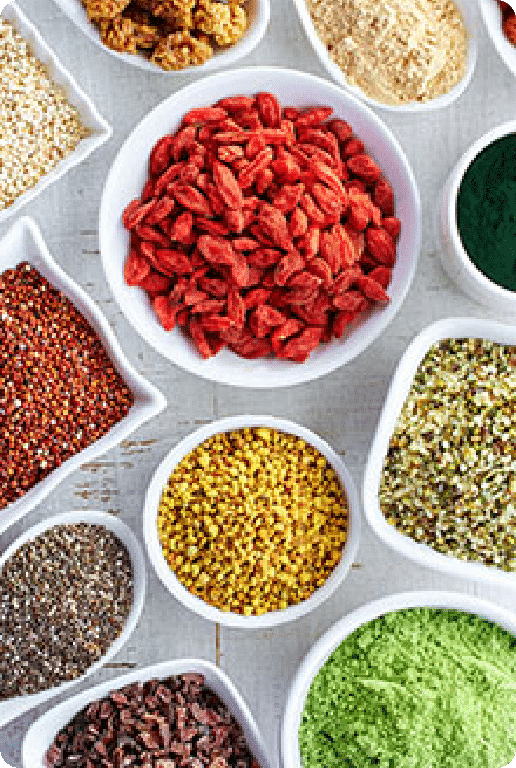Have you ever found yourself in a state of mental cloudiness or confusion after a meal? This is what we call “brain fog after eating”, a not-so-uncommon experience that leaves many individuals feeling lethargic, unfocused, and mentally sluggish post-food consumption. It’s a puzzling phenomenon that can disrupt your daily activities, your work productivity, and your overall sense of well-being.

Despite being quite common, the causes of this post-meal brain fog can vary greatly, ranging from specific food intolerances to broader dietary habits. This article aims to shed light on this perplexing experience, discussing potential triggers and offering guidance on how to manage and possibly prevent these after-meal mental slumps. If you’ve ever asked yourself, “Why do I experience brain fog after eating?”, then keep reading to unravel the mystery behind this phenomenon.
Why does brain fog occur after eating?
Brain fog after eating can occur due to several reasons. One common cause is reactive hypoglycemia, a condition where blood sugar levels drop after eating. Certain food intolerances or allergies, such as gluten or dairy, can also cause brain fog. Additionally, overeating, particularly foods high in sugar or carbohydrates, can result in a spike and then drop in blood sugar levels, leading to feelings of mental cloudiness. Other potential causes include dehydration, lack of sleep, and chronic stress.
Which foods are known to cause brain fog?
Certain foods are more commonly associated with causing brain fog. These include:
- Refined Carbohydrates: Foods like white bread, pasta, and pastries can cause rapid spikes and drops in blood sugar, leading to feelings of brain fog.
- Sugar: Consuming high amounts of sugar can also cause blood sugar fluctuations and subsequent brain fog.
- Processed Foods: These often contain additives, preservatives, and artificial sweeteners that some people may be sensitive to, causing symptoms like brain fog.
- Alcohol: It can dehydrate and disrupt normal brain function, leading to brain fog.
- Caffeine: While it can boost alertness in the short term, overconsumption can lead to brain fog.
- Dairy and Gluten: For those with sensitivities or intolerances, consuming dairy or gluten can result in brain fog.
What should you do if you experience persistent brain fog?
If you consistently experience brain fog after eating, it’s important to take steps to address this issue:
- Monitor Your Diet: Keep a food diary to track what you eat and when you experience brain fog. This can help identify any patterns or specific foods that might be triggering your symptoms.
- Stay Hydrated: Dehydration can contribute to brain fog. Make sure you’re drinking enough water throughout the day.
- Get Regular Exercise: Physical activity can boost blood flow, improve cognitive function, and help reduce brain fog so make sure to incorporate exercise into your daily routine.
- Manage Stress: High-stress levels can exacerbate brain fog. Incorporate stress management techniques into your routine, such as yoga, meditation, or deep-breathing exercises.
- Prioritize Sleep: Lack of quality sleep can lead to brain fog. Try to maintain a consistent sleep schedule and create a restful environment to improve your sleep quality.
- Consult a Healthcare Professional: If your brain fog persists despite these efforts, it may be a sign of an underlying health issue. Consult a healthcare professional for a thorough evaluation and treatment recommendations. Persistent brain fog should never be ignored, as it could be a symptom of a more serious condition.
Frequently asked questions (FAQ)
Got more questions about brain fog after eating? Check out some commonly asked questions about this topic below.
Is it normal to experience brain fog after eating?
While occasional brain fog can occur due to factors such as lack of sleep or high stress, consistent brain fog after eating could indicate food sensitivity or other underlying health issues. If this is a regular occurrence, it’s advisable to consult a healthcare professional.
Could certain foods be triggering brain fog?
Yes, certain foods, particularly those high in refined sugars, carbohydrates, or allergens like gluten or dairy, can trigger brain fog in some individuals. This can be due to fluctuations in blood sugar or inflammatory responses.
How can one manage or prevent brain fog after eating?
Keeping a food diary to identify potential triggers, staying hydrated, getting regular exercise, managing stress, prioritizing good sleep, and maintaining a balanced diet can all help manage and prevent brain fog. If these strategies don’t help, it’s important to seek medical advice to rule out any underlying health conditions.
Final Word
Have you ever experienced mental fog or a lack of focus after eating? You’re not alone, and there are ways to address it. Remember, each person’s body is unique, so what causes brain fog for one may not be the same for another. Understanding how your diet affects your mental clarity is key to improving your overall well-being.
If you found this article helpful, don’t hesitate to share it with your friends. For more valuable tips on brain health and nutrition, explore our blog. Your path to optimal health continues!





